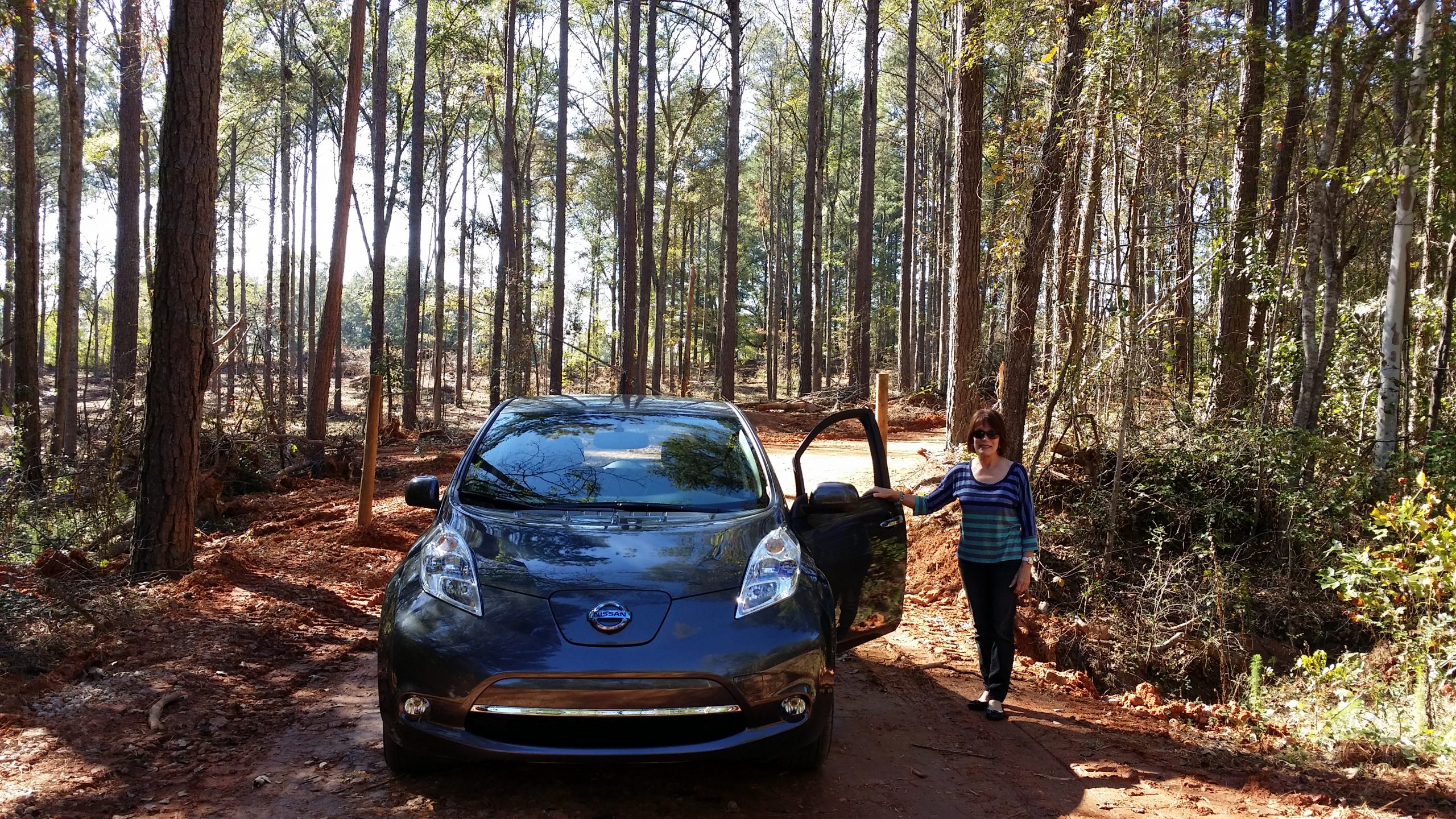It may have been a Coweta County first.
When Phil and Ann Beegle decided to thin timber on their Roscoe farm, putting fuel in Ann’s all-electric car wasn’t even considered. But, on reflection, this exercise in forest stewardship supplied the annual electricity needs for the Beegles, including Ann’s car, and more than 100 other families.

“We have some beautiful old stands of trees. To keep the dominant ones healthy, we followed our forester’s recommendation to harvest diseased, suppressed, invasive or otherwise undesirable ones. Preserving property aesthetics and wildlife habitat were very important to us too,” Ann said.
The process generates a lot of small stems, limbs and tops. Those byproducts were chipped and delivered to a state-of-the-art biomass electric plant in Barnesville. Owned by Piedmont Green Power, the Barnesville facility produces enough renewable electricity for about 35,000 households.
Think of one load of unwanted wood chips powering two homes for a year.
“There are so many positive components to what happened on the Beegles’ property,” said Jonathan Parker, a Newnan based forester and business owner. “On the surface you have the property owner making the right decisions on what the forest needed. Then we had the operational capability and markets to execute that plan.”
A much greater picture is emerging: Georgians taking a positive step away from fossil fuel dependency. Instead they can rely on locally grown, harvested, processed, transported and consumed fuel. In the Beegles’ example, at least, the greater goods include healthier forests, sustainable renewable energy, safe emissions and pleasing landscapes.
With Atlanta being one of the largest markets for electric vehicles, and the state with the largest inventory of privately owned timberland, Georgia could find itself in a leading role for home-grown energy possibilities.
This article was originally published on Dec. 12, 2014 in The Newnan Times-Herald. Click here to view the story.

